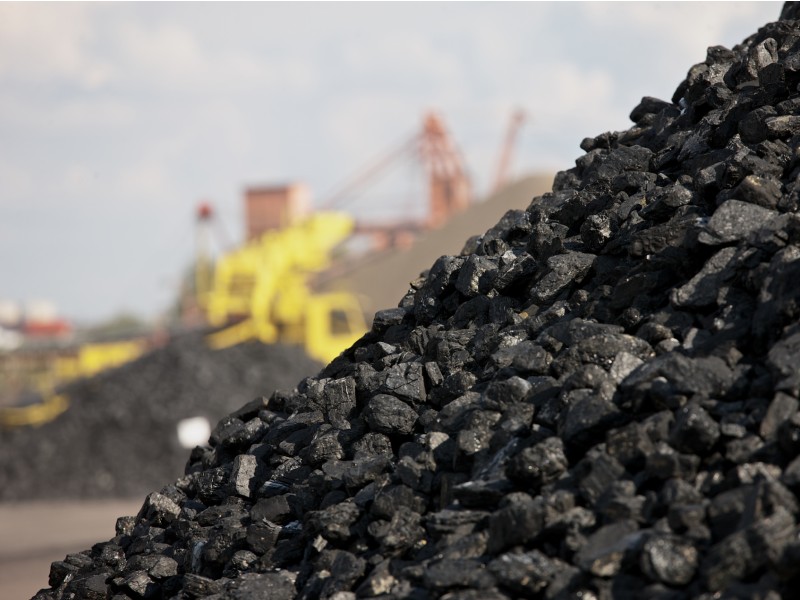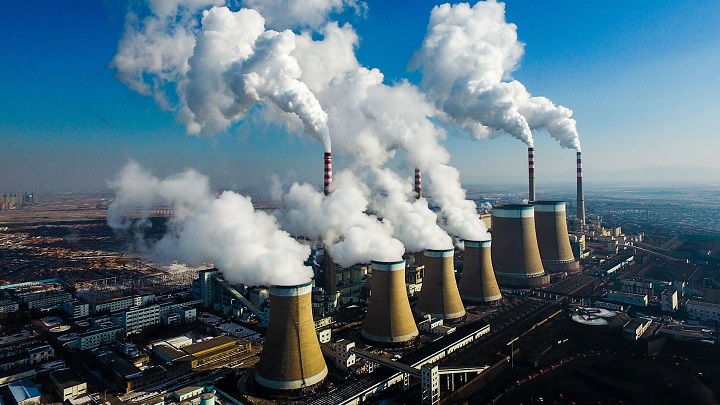
Africa’s energy needs are growing. This has led some governments to turn to coal-powered plants. Critics say that’s not a smart move in times of climate change and point to the continent’s renewable energy resources.
In South Africa, power outages are not the exception but the rule. In the past, those power cuts often occurred in the cold winter, but today the lights also suddenly go out in the summer. The country’s power grid and power plants are outdated, and energy demand has increased.
Like South Africa — where around 90% of energy comes from coal — other African countries have embarked on mining this raw material. Botswana, Tanzania, and Mozambique are among the leading countries.
Energy poverty ‘key concern’
“Energy poverty is a key concern when it comes to many developing countries,” says NJ Ayuk, executive chairman of the African Energy Chamber — an organization that brings together mostly private companies in the energy sector.
According to Ayuk, decisions to reduce the supply deficit entail significant investments in the coal sector. “Coal — in some countries that have it — is in abundance, efficient, and convenient,” Ayuk told DW, adding that the logistics are already in place compared to most countries that lack infrastructure for renewables.
Help and support with coal energy in Africa come from China, Russia, and France. “These countries often supply the finance and technology, and it makes sense for them to tap into resources that already exist and build the economy,” Ayuk said.
“In comparison, G8 or G20 countries provide contracts and lessons. Many African countries feel that these developed nations are not really talking to them,” he added.
For Ayuk, there is an alternative to coal. “Gas is cleaner than coal and could be used for power plants as we prepare to use renewable energy.” Africa boasts of substantial gas reserves. For example, Mozambique, Tanzania, Ghana, Nigeria, and Senegal have recently discovered gas deposits.
Impact of coal energy
What impact on the climate would additional coal-fired power plants have in Africa? According to Stephen Karekezi, chairman of the non-governmental organization Africa Energy Policy Research in Kenya, they wouldn’t play a big role.
Many plans for new coal-fired power plants have not even been implemented yet, Karekezi told DW. “Even if they were realized, the impact on global climate change will not be noticeable,” he added.
Africa’s one billion people contribute only between 1 and 1.5% of global greenhouse emissions, Karekezi said.
About 34 coal-fired power plants currently produce roughly 53 gigawatts, supplying one-third of the continent’s electricity needs. 19 of these power plants are located in South Africa.
According to the Global Coal Plant Tracker website, Africa plans to establish 25 new coal power plants.
The organization Energy for Growth Hub, which has examined the projects in more detail, found that only one small plant in Niger with a capacity of around 100 megawatts is to be completed soon. Nine other projects could come online in the future, but construction has not yet begun.
Low green energy costs
The remaining 14 plants have either already been canceled or are unlikely to be completed. Among them is the planned coal-fired power plant near the Kenyan coastal town of Lamu, a UNESCO World Heritage Site. The Chinese-backed project has had its license revoked after environmentalists sued.
For the environmental group Greenpeace, there is no reason why African countries should invest in coal-fired power plants. “The impact is immense. We feel it in South Africa. Burning coal produces toxic substances like carbon dioxide, and acid rain changes our groundwater — all dangers for the environment and health,” Nhlanhla Sibisi, a climate and energy expert, told DW.
He said the continent has diverse potential for renewable energy sources such as wind, solar, and geothermal. “The cost of solar can no longer count as a factor because it has dropped a lot.”
For example, Kenya gets 25% of its electricity needs from renewable sources, and African countries can increase this approach. “Governments need to make a shift towards renewables through better implementation of relevant policies and legislation,” Sibisi said, adding that this is the only way to prevent a climate crisis.











